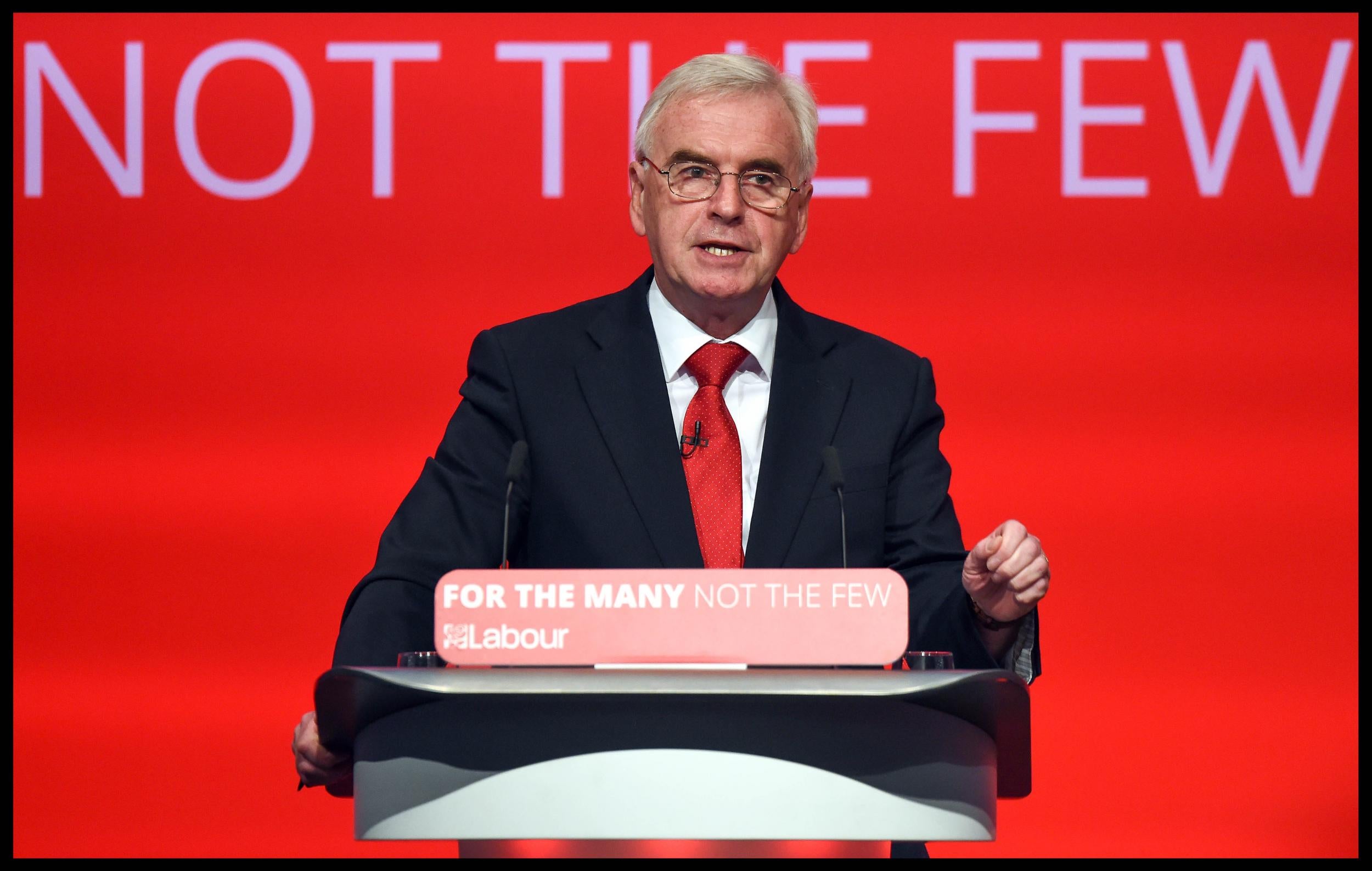Labour will scrap tuition fees and address growing student debt, vows John McDonnell
'Education is not a commodity to be sold', says Shadow Chancellor

Your support helps us to tell the story
From reproductive rights to climate change to Big Tech, The Independent is on the ground when the story is developing. Whether it's investigating the financials of Elon Musk's pro-Trump PAC or producing our latest documentary, 'The A Word', which shines a light on the American women fighting for reproductive rights, we know how important it is to parse out the facts from the messaging.
At such a critical moment in US history, we need reporters on the ground. Your donation allows us to keep sending journalists to speak to both sides of the story.
The Independent is trusted by Americans across the entire political spectrum. And unlike many other quality news outlets, we choose not to lock Americans out of our reporting and analysis with paywalls. We believe quality journalism should be available to everyone, paid for by those who can afford it.
Your support makes all the difference.John McDonnell has renewed the Labour Party's promise to scrap tuition fees and cancel existing student debt in a speech to the Labour Party Conference.
Speaking to delegates in Brighton, the Shadow Chancellor stood by commitments made in the 2017 manifesto and called on the Chancellor to address “unsustainable” levels of student debt.
“The Tories have tripled tuition fees and allowed the Student Lonas Company to hike up interest rates. Young people are now leaving university with £57,000 worth of debt”, said the MP for Hayes and Harlington.
“Education is a gift from one generation to another - not a commodity to be sold.”
The Shadow Chancellor also signalled his support for writing off all outstanding student debt - an issue which has caused some difficulty for the Labour Party.
In July, Jeremy Corbyn was forced to deny he had broken a promise to write off all outstanding student loans, after saying he would “deal with” the debt burden on the Andrew Marr Show.
Speaking to conference on Monday, Mr McDonnell cited research produced by the Institute of Fiscal Studies, which found that the cost of writing off the debt was significantly cheaper than previously thought.
The IFS calculated that immediately scrapping the debt would add £20bn to government debt, but that delaying the decision until the end of the current parliament in 2022 would add £60bn.
Initially, it was believed the cost of writing of student debt would be around £100bn. However, the IFS said this figure was overstating the real cost, because a large portion of student is never repaid, meaning the government already effectively "writes off" some of this debt.
The Chancellor Philip Hammond is currently considering reducing interest rates on student loans and raising the threshold at which students begin repaying. The Shadow Chancellor said he would support these changes, but that they would “not go nearly far enough” in terms of tackling the debt burden.
It has also been reported that the Autumn Budget will contain measures to reduce maximum annual fees from their current level of £9,250 to £7,500.
Reacting to the speech, NUS Vice President Amatey Doku said: “Consecutive governments have been loading increasingly unsustainable levels of debt onto students. Today’s students will leave university with around £50,000 of debt.
"We are pleased that there is an appetite for undoing some of the recent damaging education funding reforms, but we need to be clear: cutting interest rates will not solve the problem.
"Students will still leave university with debt they can never repay, low and middle earners will still pay more with every batch of new graduates and the poorest students will still suffer the most. Only a full review of education funding can begin to undo the damage.”
Join our commenting forum
Join thought-provoking conversations, follow other Independent readers and see their replies
Comments